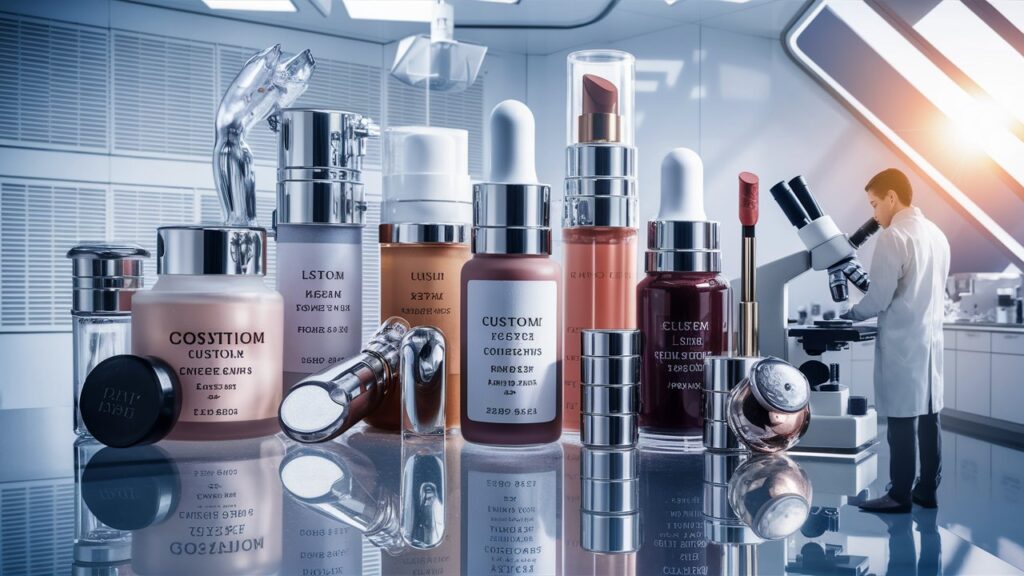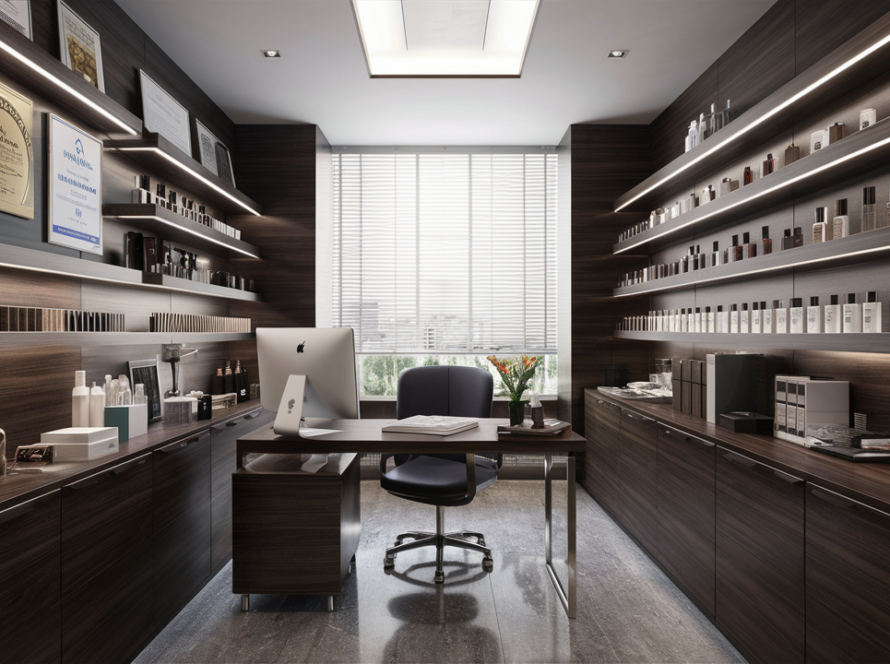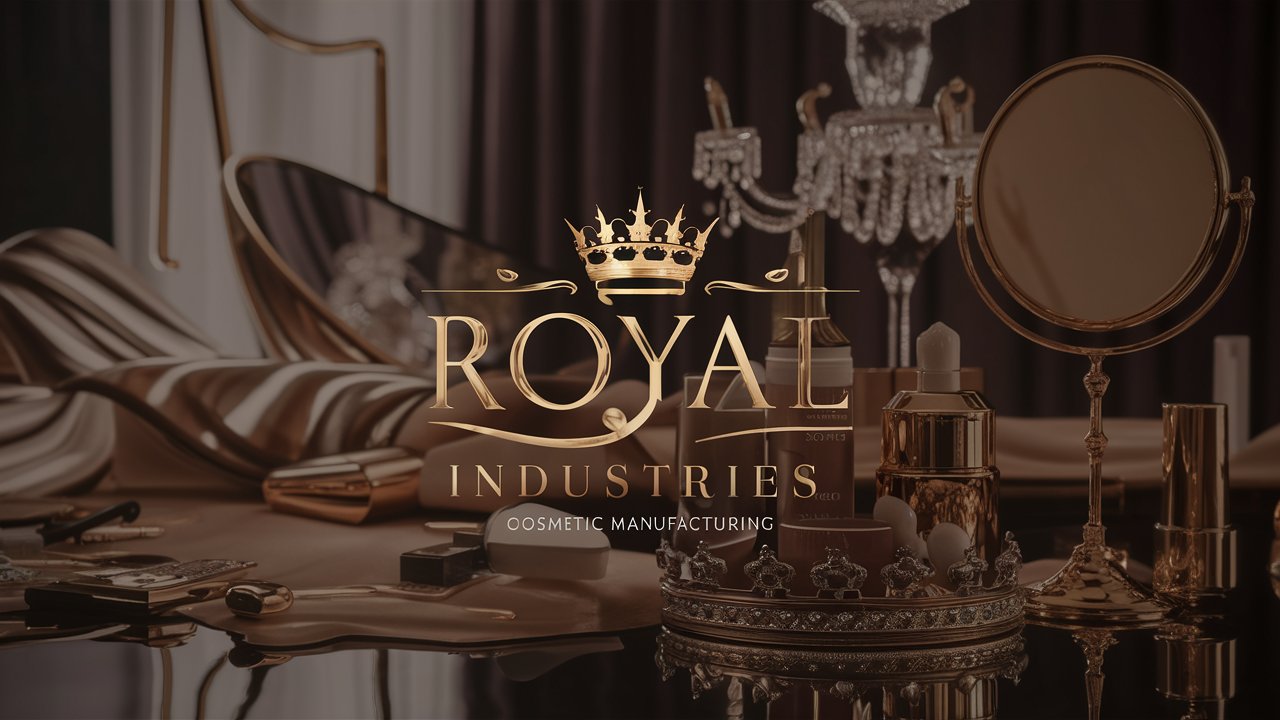Since consumers have become more sophisticated and expect personalised solutions that meet their requirements and preferences, the cosmetics sector has changed dramatically. Success in cosmetics requires being ahead of the curve and responding to varied client tastes.
A popular method is Custom Cosmetic Formulations. Cosmetic brands can design personalised items that match their brand and meet customer wants using this strategy. This article will discuss custom formulation manufacturing in the cosmetics sector.

What is a Custom Cosmetic Formulation?
A custom cosmetic formulation is a tailor-made blend of ingredients that are specially designed to meet the particular requirements of a brand or an individual customer. Unlike mass-scale, one-fits-all products, customised formulations are made for different skin types, problems, or desired effects.
Imagine having a skincare serum tailored to your unique combo of dryness, fine lines, and uneven skin tone. Or a lipstick shade that suits your dream colour well but, at the same time, moisturises your lips with a custom mix of hydrating substances. That is the magic of custom cosmetic formulations!
Importance of Custom Cosmetic Formulation
With the beauty market being increasingly competitive, custom formulations are the secret weapon of brands that want to stand out and cater to the varied needs of their customers. Personalisation is an important aspect, and consumers are increasingly demanding products that are customised to their individual needs.
The custom formulation helps in inventing new products and tries to fuse together new components that are not seen diagonally with new technology for the benefit of customers. Brands will no longer have to stick to conventional practices that were commonplace for mass production. They will be able to experiment with new ideas and continue to reinvent what is possible in the world of cosmetics.
Why Cosmetic Companies Choose Third-Party Manufacturers
While some large cosmetic companies have in-house research and development teams, many brands, especially smaller ones, rely on the expertise of third-party manufacturers to bring their custom formulation dreams to life. There are several compelling reasons for this:
Expertise and Resources:
Third-party manufacturers specialise in cosmetic formulation and have access to state-of-the-art facilities, equipment, and skilled professionals, such as cosmetic chemists and product developers.
Cost-Effectiveness:
Building and maintaining an in-house formulation lab can be prohibitively expensive, especially for smaller brands or those looking to test new product concepts before committing significant resources.
Flexibility:
Third-party manufacturers can quickly adapt to changing market demands and trends, enabling brands to respond more efficiently to consumer preferences and stay ahead of the curve.
Scalability:
As a brand’s custom formulation gains popularity, third-party manufacturers have the capacity to scale up production seamlessly, ensuring consistent quality and supply.
Process of Custom Cosmetic Formulation
Developing a custom cosmetic formula is a very detail-oriented process that involves close cooperation between the brand and the third-party manufacturer. Here’s a behind-the-scenes look at how it all comes together: Here’s a behind-the-scenes look at how it all comes together:
Initial Concept and Design of Custom Cosmetic Formulation
The process starts with developing clear goals for custom formulation production. Brands typically will issue their sales and marketing departments comprehensive briefs that outline desired product attributes, target audiences, and specific issues or advantages that are to be addressed.
Ingredient Selection and Sourcing
Second, the cosmetic chemists and product developers of the third-party manufacturer go through a research and selection process to come up with the ultimate ingredients blend to reach the desired goals. From high-powered botanicals and effective actives to fun textures and new delivery systems, each ingredient is thoroughly tested for its effectiveness and compatibility.

Formulation Development and Testing
Once the ingredients are picked, the time for real magic in the formulation room comes. Cosmetic chemists are such professionals who can develop and improve the custom-made product that is required to change the ratios and combine the techniques into a stable, effective and beautiful blend.
Extensive Testing
Extensive testing comes next; this includes assessing stability and efficacy, taste, and the user’s experience. This process gets repeated till the brand is completely satisfied with the formulation.
Quality Assurance and Compliance
When it comes to the beauty industry, quality and conformity are first. Third-party manufacturers, who are key players in this process, ensure that formulations for custom products not only give outstanding results but also fulfil all security and regulatory norms.
The role of third-party manufacturers in assuring product quality.
Third-party manufacturers conduct thorough quality control procedures throughout the entire formulation and manufacturing process. From material testing and process controls to testing of finished products, every step is monitored rigorously to ensure consistency and compliance with industry standards.
Regulatory Compliance in the Cosmetic Industry
The cosmetic industry puts safety and quality ahead of everything else, so it is highly regulated, meaning the guidelines are stringent in regard to ingredients, labelling, and processes. Custom formulators, being knowledgeable of the latest regulations and standard practices that pertain to the manufacturing process of their custom formulations, help bridge the gap in ensuring that these products are in compliance with the existing legislation and industry practice.
Their regulatory expertise and product documentation experience help brands alleviate the complexities of cosmetic manufacturing by bringing their custom formulations to market safely and with confidence.
Why should you consider custom formulation for your product?

Custom formulations improve product look, performance, and cost. Custom formulae increase product appearance and feel by providing a high-quality finish. Off-the-shelf custom products are practical but can disrupt production. The current manufacturing cycle evolves constantly.
Finding strategies to boost production line throughput is crucial as lean operating models and consumer demands dominate the manufacturing business. Custom production can meet all data points, not just the standard pricing. Thus, your industrial supply chain will save significantly.
Custom solutions provide superior customer support to algorithms. Address any questions, complaints, or comments to the chemists designing a specific solution for your firm since you are currently talking with them.
Conclusion
In the constantly changing world of cosmetics, custom formulations are revolutionising the way we perceive beauty. By collaborating with third-party manufacturers, brands can gain access to a new world of endless possibilities, leading to products that stand out, are truly personalised, and are more innovative than ever before, meeting the specific needs and desires of their customers.
From idea to reality, third-party manufacturers are essential sector stakeholders, bringing their experience, resources, and adherence to quality and regulations into the company. That’s why the next time you go for a luxury, customised beauty ritual, think about the magic behind the scenes – the art of custom cosmetic formulation and the professionals who make it all possible, like we do at Royal Industries
FAQs
What exactly is cosmetic manufacturing?
Cosmetic manufacturing is the process of making beauty and personal care goods, like makeup, skincare, haircare and fragrances. Cosmetic manufacturing is mostly a systemic procedure that involves the design of formulas, identification of raw materials, manufacturing, packaging and quality control.
Is selling skincare profitable?
If you know what you’re selling and have a competitive advantage and brand loyalty, you may successfully get into skincare. The skincare industry is one of the industries with the highest demand. In order to be successful, you need to provide solutions for a certain problem, target a specific market and make your products special to stand out.
What is known as a cosmetic formulator?
Those who work as cosmetic chemists are chemistry-oriented professionals who concentrate on developing new beauty products, including makeup, lotions, or shampoos.





